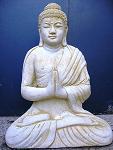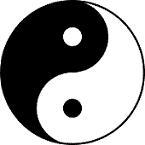Asia, in addition to being the birthplace of the Abrahamic religions, is also home to the Taoic (East Asian) and Dharmic (Indian) religions.¹
Taoic religions include Daoism (Taoism), Confuscianism, and Shinto. Other Asian folk religions are covered under Indigenous Religions. Dharmic religions include Hinduism, Jainism, Buddhism, and Sikhism.¹
Taoism, based in China, has spread across Asia and focuses on the concept of wu wei – action through inaction, as well as teaching compassion, humility, and moderation.¹
Confucianism has a strong history in China and was created by the Chinese philosopher K'ung-fu-tzu (Confucius). The basis of Confucianism was to teach morals, and social and political rituals, but has expanded to include metaphysical religious elements.¹ Rules about relationships, family, and duty are central to Confucianism. Deities are accepted but not encouraged in Confucianism.¹
Shinto, “the way of the gods”, is Japan’s indigenous religion.¹ Shinto ties closely with Buddhism and also has Taoic ties. Nature and kami (spirits of the elements, animals, and the dead) are important in Shinto.¹ Ritual cleanliness, tradition and family values are important to adherents of Shinto.
Dharmic religions are based in India but especially in the case of Buddhism, have spread to neighbouring Asian countries. Hinduism is the third largest religion in the world.¹ Hinduism and Jainism are two of the oldest religions still in practice. Buddhism is common throughout most Asian countries. Sikhism is a growing monotheistic religion founded in Punjab.¹
Reference:
1. Religion & Public Project. The Global Religious Landscape. Retrieved May 22, 2014, from http://www.pewforum.org/2012/12/18/global-religious-landscape-exec/
© BrainMass Inc. brainmass.com June 30, 2024, 5:55 am ad1c9bdddf



